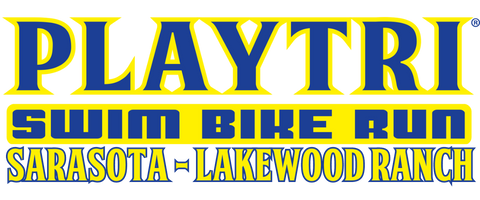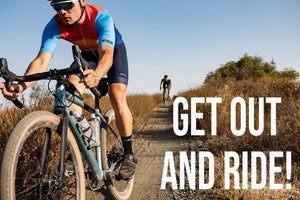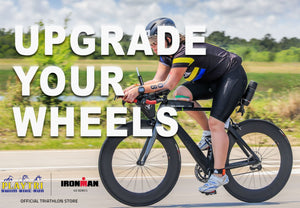
TRI TIPS FROM COACH JIM: ESSENTIAL PRE-SEASON BIKE DRILLS
The preseason (or prep period if you use Joe Friel’s terminology) is the time of year where we are more intentional about preparing our bodies to be able to handle the increased training and racing that will happen in the upcoming season. Thus, it is an excellent time of the year to deliberately shift our focus from getting in the big miles and intensity and work on things like: improving body composition, core strength, swim form, bike skills, and run form. Here are my favorite preseason bike drills to improve your pedaling stroke and bike handling skills.
High Speed Spinning — While riding on a trainer or a flat section of road at the end of your warm-up, increase your cadence by 10-15 rpms, and hold that cadence for 1 minute, recover at normal cadence for 1 minute and repeat 5 times. The goal of this drill to improve your pedaling efficiency. If you start bouncing in your seat, then slow your cadence a bit until you are no longer bouncing.
Single Leg Drill — While riding on a trainer or a flat section of road at the end of your warm-up, unclip one foot and use the other leg to turn the cranks. Pay attention to lightly dragging your foot across the bottom (like scraping mud off the bottom of your shoe), lifting your knee upward, then gently kicking over the top. Pedal with one leg for a minute at a time, paying attention to where dead spots show up in your pedal stroke, then switch to your other leg. Repeat 5 times on each leg. The goal of this drill is to develop your ability to apply power efficiently throughout the entire pedal stroke.
Riding Slowly — In an empty parking lot, quiet road, or empty bike path, slow your roll until you are riding at 2-3 miles per hour, while maintaining a smooth pedal stroke and riding in a straight line. Riding slowly forces you to improve your overall balance and gives you confidence when you find yourself riding in traffic.
Slow Slalom & Parking Space Figure 8 — Like riding slowly, this drill improves your balance and also your handling skills. In an empty parking lot, use cones or small items like water bottles or spare inner tubes to create a short course for yourself. A slalom style course is particularly helpful. Another good course is riding in a figure 8 within the area of a parking space. Both of these courses require you to ride slowly, learn the handling qualities of your bike, and how you can use your body weight to steer your bike.
Single Hand Riding — Single hand riding is an important skill to develop for triathletes for signaling turns, grabbing water bottles & nutrition, and improving your handling and balance. In an empty parking lot, while riding at least 12-15 mph place your hands on the bar top, sit square on the saddle, and practice lifting on hand at a time. As you get more comfortable riding with one hand, move your free hand to different parts of your bike and body to practice grabbing a bottle from your down tube or grabbing nutrition from a jersey pocket. Once you are comfortable riding single handed from the bar top, practice single handed riding from the aero position.
Bike Mounts — Flying mounts certainly are not a requirement for age group triathletes, however there’s a lot of free speed if you can mount your bike without coming to a complete stop. If you are new to moving bike mounts, here are the steps to master a scooting bike mount. 1) In an empty parking lot, wear running shoes and practice running while holding your saddle with your right hand. Practice this until you are comfortable steering your bike while running. 2) Grab the handlebar with both hands and place your left foot on the left pedal and practice scooting your bike forward by pushing off the ground with your right foot. Continue this until you are comfortable and balanced. 3) Once you are comfortable scooting on your bike, then practice swinging your right leg back and forth over your saddle while scooting. After you have mastered these steps then you can practice these steps with your shoes clipped to your pedals.
Jim Rowe is a Playtri Level 4 Coach and a USAT LI Certified Coach who works with adult athletes of all abilities from beginners to IRONMAN World Championship qualifiers. Learn more about Jim at www.playtri.com/jim-rowe.



Leave a comment